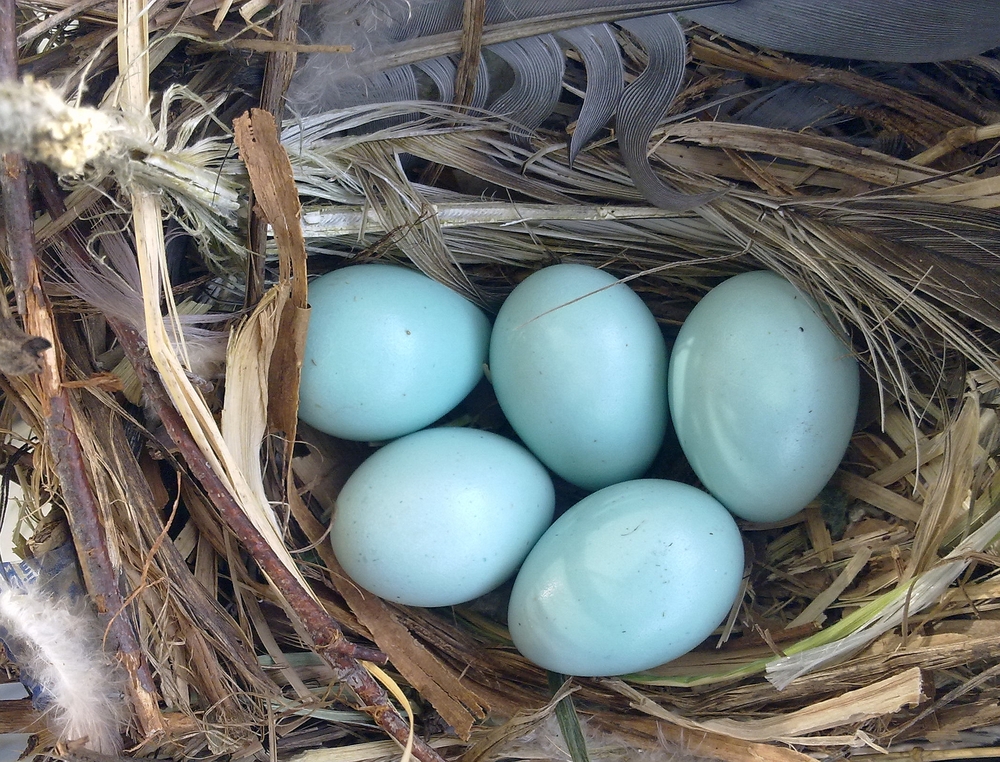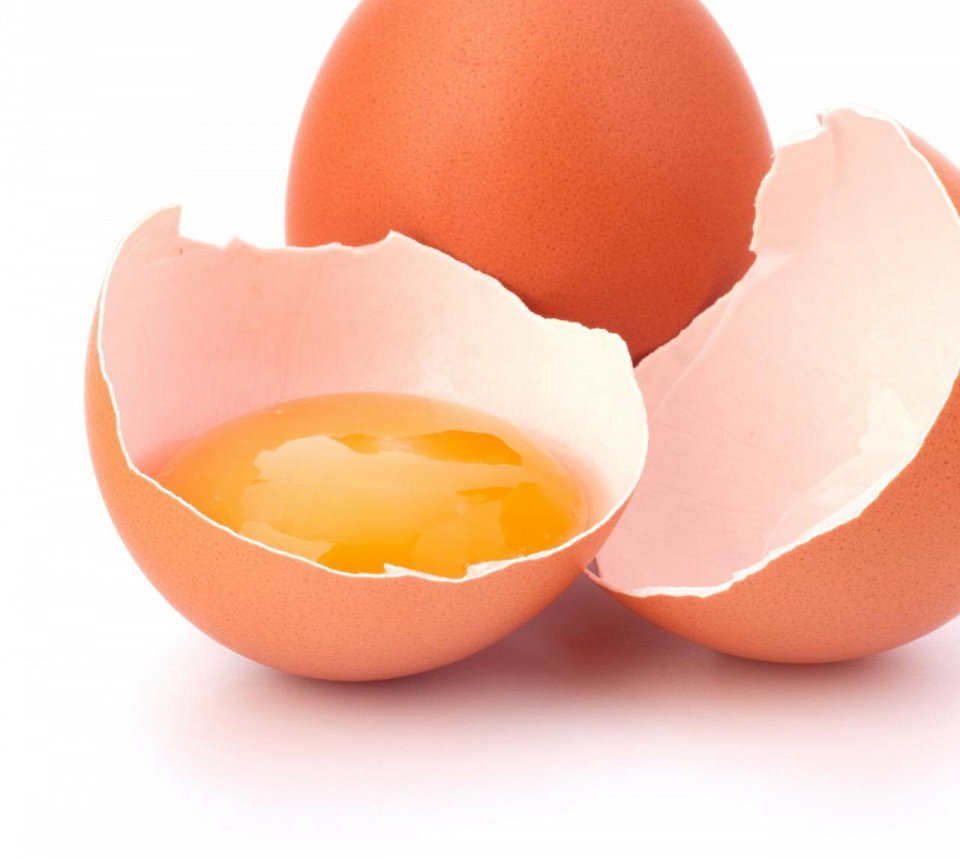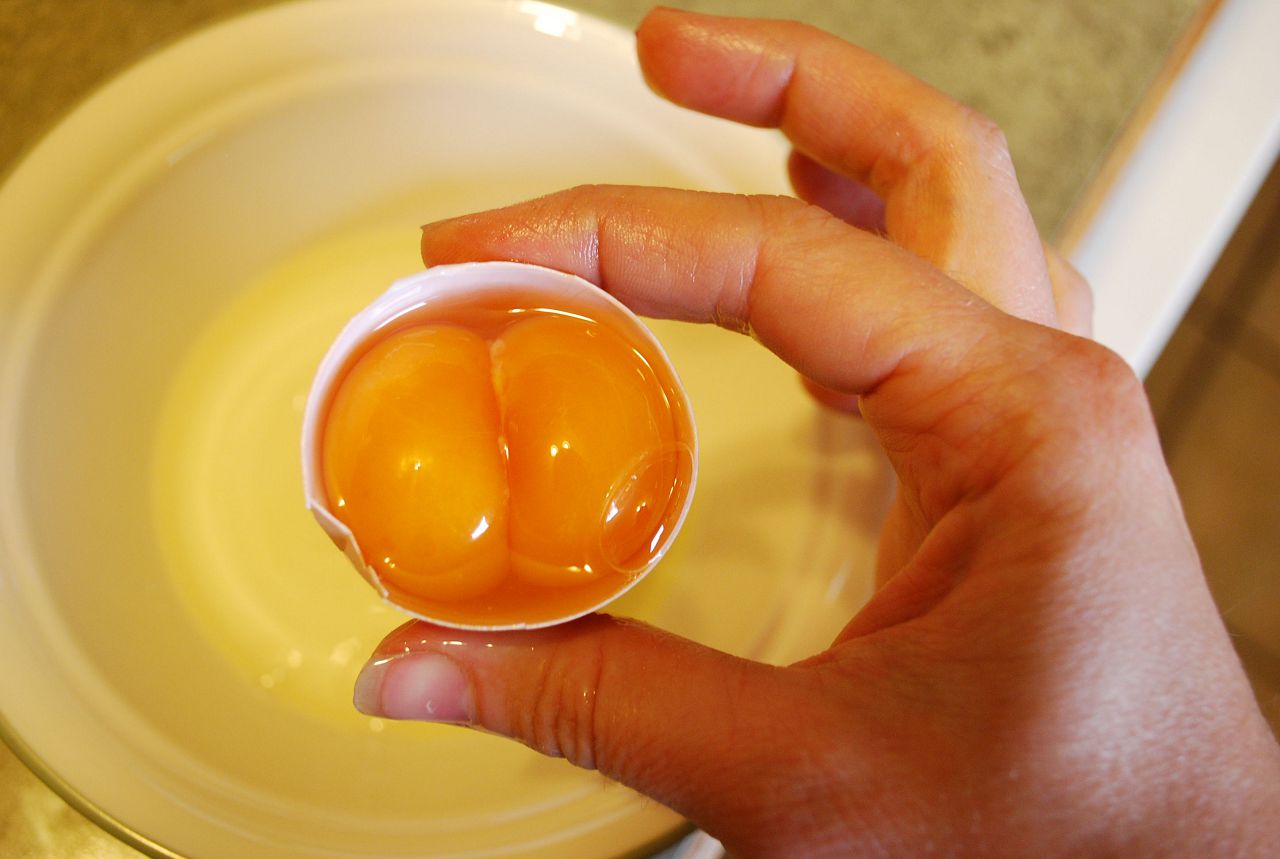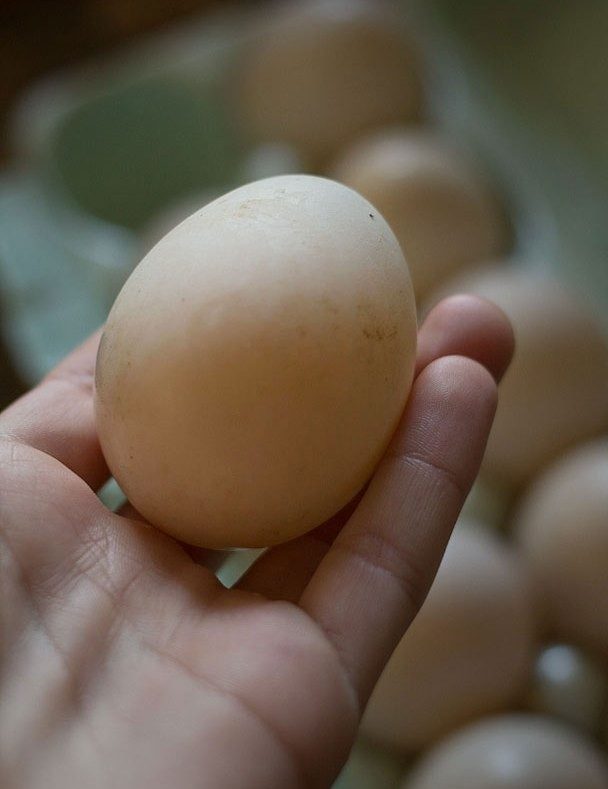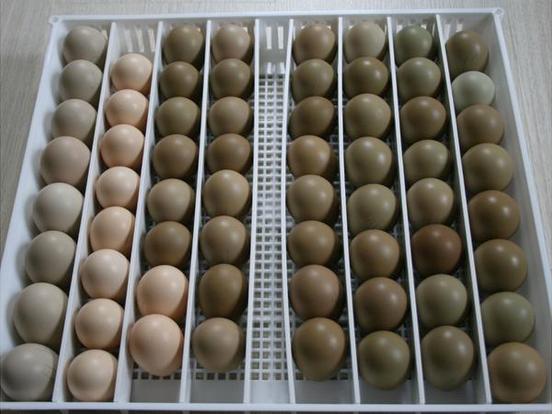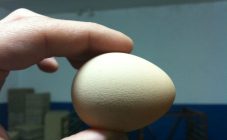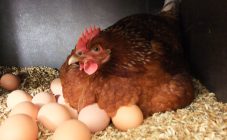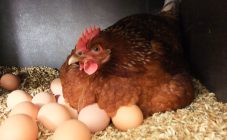Content:
People began to eat eggs a long time ago. There are several ways to prepare them - boiled, fried, etc. Even just raw, they are edible and nutritious. Moreover, in the modern world, for most people, this product is an integral nutritional element, and it never hurts to learn more about it.
The eggs are marked in a certain way, but not everyone is aware of the meaning of the symbols on them. First of all, the permissible shelf life of the product is indicated: so "C" (table) - should be consumed within 30 days, and "D" (dietary) - in just 7 days. The second symbol after "C" or "D" shows which egg by weight: "B" - the highest category, which means that the egg is over 75 g; "O" - selected (65-75 g); "1" - the first category (55-64 g), "2" - the second category (45-54 g) and "3" - the third category (35-44 g).
A chicken egg is unique in composition, because it contains protein, fat, vitamins, carbohydrates, salts, folic acid, etc. It is noteworthy that by eating one unit of such a product, you can replenish 15% of the daily protein intake.
What determines the color of an egg in a chicken?
There is an opinion that the taste of the product depends on the color of the shell, like the color of the yolk, but this is far from the case. They practically do not differ in taste. Well, to lay white or brown eggs - in poultry it is laid at the genetic level. A pattern is traced: a hen with white plumage lays white eggs, and with a brown color or golden, respectively, brown, but there are exceptions to the general rule. Earlobes in chickens will give you accurate information. Even if the chicken is white and its lobe is red, the eggs will still be brown.
Directly determines the color of the product of the layer breed. For example, from the Russian White and Leghorns, you should expect white testicles, and Orpington, Dominican and Rhode Island will please you with brown ones. In the market and in stores, it is more often brown variations that are sold, since golden and dark chickens grow meat faster, and they can still be used for cutting.
Another factor that can influence the intensity of the shell color is environmental conditions (air temperature, illness and stress, laying period).
In addition to everything else, the longer the egg lingered in the oviduct, the more it managed to absorb the protoporphyrin pigment. This pigment is a constituent part of hemoglobin, and it acts in a certain way on the shell.
Why is the yolk different colors?
Some eggs differ not only externally, but also internally - in the color of the yolk. It can be of all shades - from rich yellow to poisonous orange. This order is determined by the pigments of the carotid group. Therefore, there is a direct relationship between the nutrition of the layers and the color of the yolk.If you feed them with foods in which there is a lot of yellow pigment (grass flour, corn), then the color of the yolk will be appropriate. For example, alfalfa and pale corn varieties are not very rich in this pigment, so the yolk will be pale yellow.
Often consumers take color saturation as an indicator of freshness or naturalness of a product, but this is a misconception. By all quality criteria, eggs with different shells or yolks differ little from each other.
Common chicken egg defects
In this or that situation, a certain defect is noted in a chicken egg. Naturally, the question arises whether it is always possible to eat such "problem" foods and what, in fact, to do in such situations.
Defects can be as follows:
- Eggs are too small. As a rule, an extremely small product is obtained in very young birds, and until they have matured, the eggs will be defective. And you should also take into account the specifics of the breed - some individuals, even at puberty, are predisposed to laying small eggs, and if you want large ones, you should pay attention to universal or meat breeds of chickens.
- Two yolks instead of one. This is not considered a dangerous defect if the egg is hatched from a healthy and normal hen. It is in no way inferior to the usual one, and for yolk lovers it is even an additional reason to rejoice.
- There is blood on the shell. If such a defect was noticed, then this is an alarming direct signal that requires an immediate health check of the laying hen. Most often, this indicates the presence of inflammation of the oviduct, a cold, but it may also be that a too small bird lays eggs that are too large for itself. In both cases, you need to show it to the veterinarian, who will decide on the advisability of prescribing antibiotics, processing or flushing the oviduct. It is better to move such animals separately from their relatives, so that if a disease is detected, they do not infect other pets.
- Blood inside the egg. Such a defect is not dangerous to humans. The reason for the appearance of blood is that chickens endure constant stress or lack of minerals. In addition, this phenomenon explains the natural process of ovulation, in which the capillaries of the bird break, and already through the oviduct, the blood from them penetrates into the white or yolk.
A special case - raw chicken eggs stink of rotten meat. It is clear that this is not at all good and dangerous for a person who dares to eat such a product. So why does the chicken lay rotten eggs? Usually, an unpleasant phenomenon provokes a laying hen's disease, and most often it is salpingitis, in which the oviduct becomes inflamed. Outwardly, it is possible to determine that a bird is sick by a blue ridge, a sleepy appearance, a heavy gait and a hot abdominal wall. Egg formation in such conditions is almost impossible. The oviduct begins to secrete pus. In some cases, the egg has a shell that is too thin or, in general, comes out without it, and the protein itself decomposes inside.
Such inflammation is a direct path to the development of peritonitis in chicken, if proper measures are not taken in time. With the transition to the next stage, salpingoperitonitis develops. All symptoms intensify, and when probing the peritoneum, they notice that it seems to be filled with water. Treatment in almost all cases has no effect, and already from the very beginning, if you want to have chickens, you should find out all the information about proper maintenance and feeding in order to maintain the required hygiene and prevent such unpleasant phenomena as a rotten egg or a sick bird.
Another unfavorable reason why the eggshell can become thinner, and, consequently, let the infection or microbes pass through, is the presence of helminths in the bird's body. When pathogens enter the egg, some may not lead to rapid attenuation. Then there is a risk that a person will eat the product and contract an infection.
What infections can be transmitted through eggs?
A number of infections infect eggs if the bird is sick or carrying a pathogen. Also, pathogens are able to penetrate through the outer shell. Vibrio cholerae, tuberculosis, Escherichia coli, various staphylococci, Pseudomonas aeruginosa, fluorescent bacillus, etc. can be transmitted in this way. , and in no case put the eggs received from her into food.
Separately, we should dwell on salmonellosis - a very dangerous infection that affects the intestines and can lead to death if the sick bird had a weakened immune system. There is a high probability of getting serious consequences after eating contaminated eggs in pregnant women, children and the elderly. First of all, the infection affects the chicken itself, and then gets to the surface of the egg. At the slightest crack, albeit an extremely small one, it turns out to be inside. For this reason, it is necessary to check the integrity and freshness of the product when purchasing or collecting.
Egg freshness: how to check
There are several methods for checking chicken eggs for freshness:
- The easiest method is to look at the stamp. At poultry farms, the future product must be marked with the date of production.
- You can find out whether an egg is fresh or not with water. Just put it in a glass of cold water and watch. If it has surfaced, then it has gone out. If it "became" on a sharp tip, directing the blunt part up, then it is about 2-3 weeks old. If it is slightly raised with a blunt end up, but does not become strictly in the middle, then the product is only 1 week old. And in the end, if the egg lies completely on the bottom of the glass on its side, then it is fresh.
- A third way to determine the degree of freshness is to check the shell for dullness and roughness. If the egg has lain for a long time, then it has a characteristic gloss. In no case should the purchased product have cracks. In addition, the characteristic smell of hydrogen sulfide indicates that eggs are rotten, and sometimes you do not need to break them to catch this aroma.
- If eggs are not purchased for cooking, then you can find out about their freshness by simply breaking them into a plate and looking. A stale egg will immediately smell bad, the whites will be overly runny, and the yolk will flatten. In this case, especially attention should be paid to the presence of protein flagella responsible for retention of the embryo. Fresh eggs must have them, but they dissolve over time.
Conditions for proper storage of chicken eggs
The favorite place for storing eggs for most people is the refrigerator door, which has a special shelf for this. In fact, keeping them there is not recommended at all, since the temperature fluctuates there due to frequent openings. A closed container with a constant temperature will cope with the task of keeping freshness much better.
If for some reason it is not possible to place the eggs for storage in the refrigerator, then you can do the old-fashioned way - put them in an enamel saucepan, having previously wrapped each one in paper and putting the sharp tip down. If the temperature in the room is no higher than 20 degrees, then for three whole weeks nothing will happen to them, and they can be eaten.
Can chicken eggs be frozen?
For many owners and housewives, the issue of freezing eggs is on a par with the issue of storage in general. So can this product be sent to the freezer or is it better not to? It is possible, but taking into account some peculiarities. First of all, you should know that frozen chicken eggs can easily burst in the freezer due to the expansion of water inside. And through the cracks, bacteria on the surface of the shell, capable of harming the human body, will instantly get inside.
Therefore, if you freeze this product, then only without the shell. To do this, break them, pour the contents of the testicles into a bowl and beat well until smooth. This should not be done very quickly so that there is no excessive air saturation, and then only freeze. It should be borne in mind that when it gets into the cold, the mixture will slightly increase in volume. If in the future, in the preparation of dishes, only proteins are needed, or only yolks, then you can freeze them separately.
With raw eggs, everything is quite clear, but is it possible to freeze them already boiled? The answer is no. A frozen boiled egg has an extremely unpleasant taste of protein, so no one is in a hurry to send it to the freezer.
Now knowing how to check the freshness of purchased eggs, as well as getting acquainted with the safe storage conditions, each housewife will be able to feed her family only with high-quality products.
